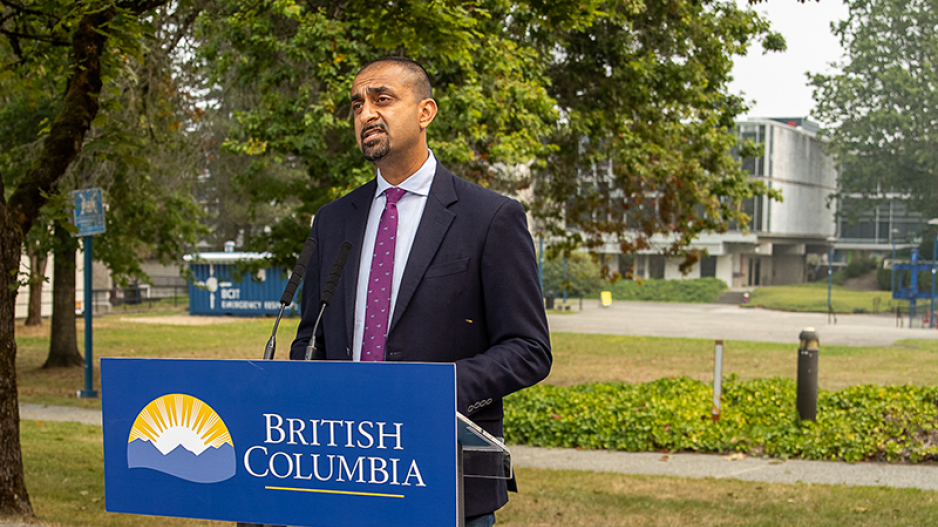A tiny section of a nondescript bill introduced in the legislature Monday could make it easier for cities to clear homeless encampments from parks and public land.
The “Miscellaneous Statutes Amendment Act” may not sound like an important bill, but it creates a provincial definition of an adequate shelter space — something that until now has been left to individual judges every time a municipality sought a court injunction to dismantle a tent city.
“If a local government were to go to court to seek an injunction to, say, perhaps move an encampment, this now creates a standard language for them in order to apply for their injunction,” said Housing Minister Ravi Kahlon, who is shepherding that section of the bill through the house.
“Courts have tried to define it, but there has been no set place where a definition exists. And this now creates certainty for both local governments, but also those that are looking for housing, that they know what the path will be for them.”
The legislation defines “shelter” as a place someone “may stay overnight,” “has access to a bathroom and shower at or near the shelter” and “is offered without charge one meal a day at or near the shelter.” The facility also has to have staff present.
B.C. courts ruled long ago that people have a right to erect shelters and sleep overnight in public places such as parks if there aren’t enough shelter spaces.
Judges have since had varying opinions over what constitutes an acceptable shelter space, as part of municipal applications for court injunctions to enforce bylaws that restrict camping.
David Eby spent hundreds of millions of dollars as housing minister to purchase hotels, motels and community buildings so that BC Housing had flexibility to open shelter beds, as needed, to respond to tent encampments that popped across the province, in particular in Victoria and Vancouver.
But just a space was not always enough. A B.C. Supreme Court justice in 2022 suspended an attempt by the Vancouver Parks Board to evict campers at CRAB Park, saying that BC Housing had failed to ensure the spaces were the right kind for the varying needs of the homeless campers.
Some of the tent city residents had complained to the court that ordinary shelter spaces made them feel unsafe, subject to racism, unwelcome based on their gender, or did not allow them to stay due to pet, mobility and shopping cart restrictions.
The court interpretation threw a wrench into the province’s efforts to stockpile enough shelter spaces to combat persistent tent cities in urban parks or on provincial land near highways.
The government described the new legislation Monday as intended to “inform a court’s analysis of injunction applications for a decampment” and “provide clarity.”
Judges, however, will have to weigh that against people’s charter rights to shelter, as well as other precedent-setting rulings.
Kahlon said BC Housing will try and go “above and beyond” in the types of shelter spaces it provides, to address people’s concerns, describing this new definition “as the bare minimum.”
“This isn't about making it easier or harder,” said Kahlon.
“This is more about creating some certainty so that local governments know what their responsibility is, those that are in encampments know the responsibility, and not leaving it to the uncertainty for courts to try to figure out what this should be.”
The government may not want to say it loud, but the motivation here is definitely to make it easier to clear out tent encampments from public parks.
Whether it works, like so much these days, will ultimately be up to the courts.
Rob Shaw has spent more than 15 years covering B.C. politics, now reporting for CHEK News and writing for Glacier Media. He is the co-author of the national bestselling book A Matter of Confidence, host of the weekly podcast Political Capital, and a regular guest on CBC Radio. [email protected]



